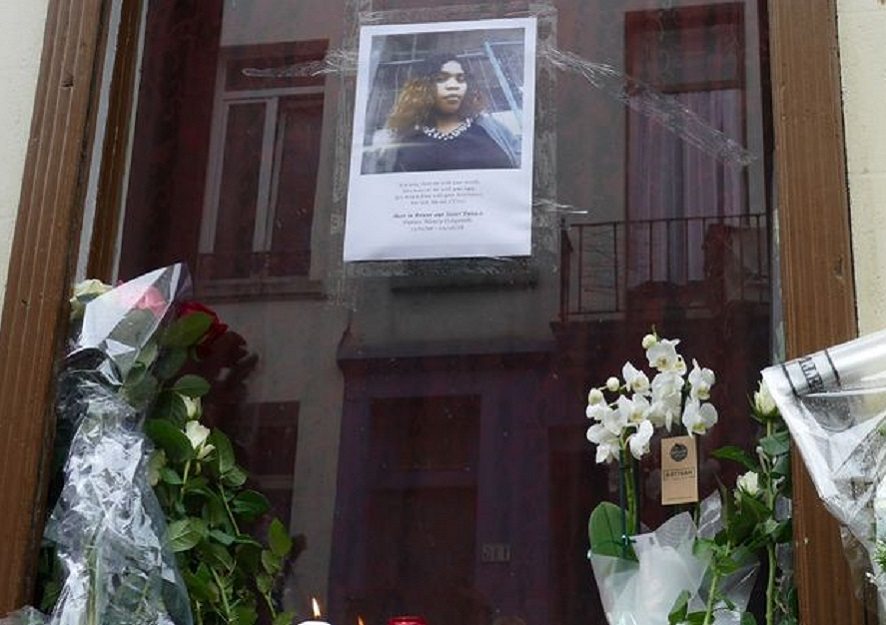Eunice Osayande arrived in the Belgian capital Brussels in 2016 after being promised work and a better future in Europe. Her journey from Nigeria to Brussels was tough. With some other girls, Osayande did not only have to cross over to Italy on a rubber boat but she was also reportedly raped several times in the course of the journey.
The gang of men she traveled with had told her they were acting agents who would make her a movie star. But they were actually human traffickers. Upon arrival in Brussels, Osayande was immediately forced into prostitution. She was told she owed the smuggling gang $52,000 for her transit, rent and pimps.
In June 2018, about two years after she arrived in Brussels, she was stabbed 17 times to death by a disgruntled client in the Gare du Nord district. She was 23. The client who was accused of stabbing her was a 17-year-old man. He was picked up two weeks later. In January this year, four people involved in Osayande’s smuggling were sentenced to between 33 months and four years in prison.
According to the BBC, Osayande contacted a sex worker charity some weeks before her death to complain that she often faced violence while working. She was scared of reporting to the police because she did not have proper papers. The migrant sex worker community in Brussels, which goes through similar challenges including robberies and beatings, held protests a year after Osayande’s death demanding better working conditions.
In Belgium, prostitution is not illegal. However, there are no unified national rules, BBC reported. “Eunice’s death has been extremely distressing, especially for undocumented migrants in the area where she worked,” Maxime Maes, director of the UTSOPI sex workers union in Brussels that organized the march, told BBC.
“The area has seen increasing violence and the most marginalized women are targeted,” Maes added.
To bring attention to the plight of these sex workers and other women who are victims of human trafficking, sexual violence and femicides, the City of Brussels has said it will name a new street after Osayande. The street will carry her eponym and will connect the Quai de Willebroeck and the Quai des Péniches, nearby the North Station, behind which Osayande was murdered, according to The Brussels Times.
“Inclusive feminism is about the rights and struggles of women at every social rank. 42% of women between the ages of 16 and 69 have at least once experienced physical sexual violence,” Ans Persoons, Alderman for Urban Planning responsible for toponymy, was quoted by The Brussels Times.
“Among sex workers, the percentage is much higher. The struggle to bring these hallucinatory high figures down deserves more attention and urgency. And that is precisely why Eunice Osayande is being given a street today,” she added.
The street will be the first named after a sex worker in the country. The decision also forms parts of a wider campaign to recognize more women in Belgium.
“Until now, we have always chosen striking – yet often forgotten – women with exceptional talent or a remarkable achievement. But for me, feminism is not only about women who excel,” Persoons said. Osayande’s street will be officially opened in a few months.
In Brussels’ North Quarter, sub-Saharan sex work grew in the early 2000s, according to an ethnographic study on sex work in the area by the University of Ghent (UGent). The majority of Nigerian women in the neighborhood come from Edo and many arrived in Europe via networks.










